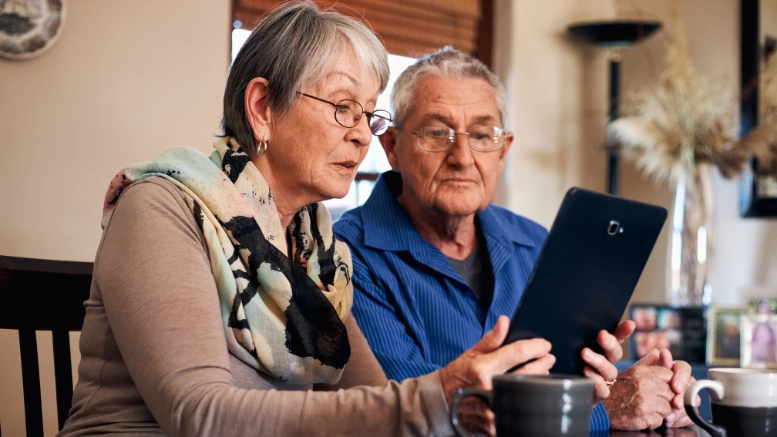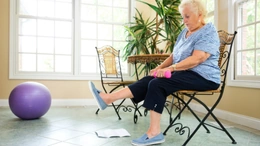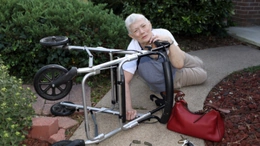What To Expect When Moving Into A Seniors Home

To live in a home for seniors involves a major lifestyle change, with emotional, physical, and practical considerations. For the extra help, the added safety, or the access to care, it makes it convenient; several families are saying this is the choice for their senior loved ones.
The specific details of what your transition will entail will go a long way in calming family members and getting everyone ready for a more seamless migration to senior homes.
Understanding Senior Living Homes And Their Role
Senior living homes are housing communities for elderly people that provide special levels of care based on the needs of their residents. These residences come in all kinds, from independent living to assisted living and nursing homes, and even memory care facilities.
In a seniors home, the people living there get care as needed. Others may require only help with meals and housekeeping, yet others may need round-the-clock nursing care.
Trained staff, medical alerts, and community areas will be available in these homes, creating a secure and inviting space to live.
Senior living strives to create an environment that promotes independence and care. They’re non-traditional communities that also offer resident-friendly social interactions to support a decent quality of life.
Things To Expect While Transitioning Into A Senior's Home
A move to a senior living community brings significant change to life, environment, and self that one must consider. Here’s what you need to know about what to expect.
Physical Environment And Living Spaces
The living situation will be one of the first things that change. Senior homes usually provide private or semi-private rooms, which are typically furnished but can be customized with personal items.
Accessible features in rooms available include non-slip floors, emergency call systems, handrails, and wide doorways for walkers and wheelchair-bound guests.
There are also common areas like dining halls, recreation rooms, and gardens. These spaces foster movement and sociability yet remain homely.
Daily Routines And Schedules
But the routine inside a senior's home is mostly a structured one. This means a regular time for meals, medications, or activities.
But the structure is at a different level in each facility and each case. Homes often provide a combination of personal time and group activities to develop independence and engagement, and allow residents privacy when they want it.
Some residents participate in scheduled exercise classes, arts and crafts, and religious services. These rituals establish a feeling of order and security.
Health And Personal Care Services
One of the primary reasons families opt for a senior living facility is access to healthcare. Care may involve medication management, monitoring basic health levels, physical therapy, or assistance with activities such as bathing, dressing, or getting out of bed.
And in some homes, visiting doctors or nurses also make these calls, and backup emergency care is always accessible.
Staff are familiar with the treatment of medical problems that occur immediately, and thus, a quick and professional response to health issues is guaranteed. Therefore, it becomes clear that the elderly are not only entitled to high-quality service, but they also receive emotional support.
Social Interaction And Community Life
Social life is a dying need for health and sanity. Residents are encouraged to join in group activities, health-promoting hobbies, and fun outings. These dealings avert loneliness and lead to friendship.
Birthday parties, film nights, and music and games nights are par for the course. Residents can also head up a club or volunteer in the community, allowing them to feel their best self and be useful.
Emotional Adjustments And Support
Transitioning to a new setting can evoke a mix of feelings, from relief to sadness, even anxiety. Some may experience a sense of loss or homesickness.
Most homes for seniors are ready to accommodate this and will make emotional support available by way of counselors, group therapy classes, or peer support groups.
Family and staff support are also critical to helping residents feel safe and understood in this transition.
Family Involvement And Visitation
It is just as important to have family stay involved after the move. Nursing homes typically offer accommodating visitation hours and welcome family members to engage in their loved one’s life.
Some have scheduled video calls and visitor days and even bring families in for events. Supportive families contribute to emotional well-being and trust in care providers.
Essential Factors To Keep In Mind Before Making The Move
There are a few practical and emotional considerations to make when deciding the best living arrangements for a senior. Here’s what to consider:
Level Of Care Needed
Different residences will provide different levels of care. Think about the senior’s medical history and personal requirements; it might be as simple as help or as complex as 24/7 medical care. Always go visit the site and ask questions about whether they will meet your expectations.
Costs And Financial Planning
Senior care can be expensive. The price could also be reliant on the location, type of room, and the level of care among many other factors. Do not forget to get everything clear with the monthly fee as insurance, pension, or government aid may pay a part but not all of these costs.
Location And Accessibility
Try to place them in a location near family and familiar surroundings. Having a home close by allows family closer access to staff and gives the senior a greater connection to the community.
Trial Stay And Orientation
Some senior homes provide a brief trial stay to see how the resident fits in. This can be useful before you take a long-term step. Orientation programs also serve to welcome new residents, introduce them to staff and neighbors, and help them become accustomed to the daily routine.
Legal And Medical Documents
Have all the documents ready, including the medical reports, prescriptions, insurance papers, power of attorney, and identification documents.
Once everything is organized, registering will be a walk in the park and a speedy one. It will keep all the mess at bay and will get the family ready on every level to cope with the big transition emotionally and physically.
Conclusion
Relocating to a seniors home marks a significant and positive shift towards living a more helpful life. Giving consideration and being open during the transition process can result in better health and safety for your loved ones.






















